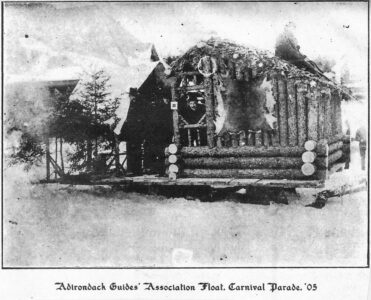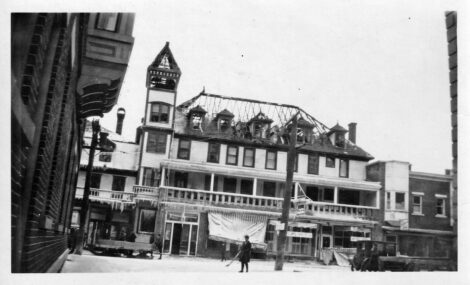The comeback kid rides again
An old boxing adage, maybe the oldest, is “They never come back.”
It means when pugs retire, it’s for a good reason, namely, they’re no longer at the top of their game. In fact, au contraire. And that’s why almost every boxer who came out of retirement, hoping he still had his stuff, found out he didn’t.
When I first started teaching, starry-eyed innocent that I was, I vowed I’d get out of the Ed. Biz before I started to lose my critical edge and cool. Like everyone who spent at least twelve-plus years in classrooms, I’d seen too many teachers who should’ve been put out to pasture years before, and were just tired or cynical hacks who were barely going through the motions — if they bothered that much.
Luckily, I retired while still sittin’ high in the saddle. My teaching had never been better, but I didn’t have the energy of the earlier years. So while my mind and classroom management were fine, I no longer could stay up late correcting papers. Thus, it was just a matter of time before I wouldn’t be getting the corrected papers back to the students within the week deadline I’d set for myself, something vital to the students and a source of pride to me.
And so, after my 41st year at Old Siwash, the writing teacher read the writing on the wall and I handed in my office key and a couple dozen unsharpened red pencils and headed off into that glorious sunset known as retirement.
I’ve known a bunch of peeps who had trouble being retired. After a lifetime of hard work, they couldn’t adjust to a life without structure and (to them, at least) too much free time. But I aints one of ’em. Matter of fact, I adjusted to retirement in about six minutes, and have never uttered Word One about there being nothing to do and too many hours in the day not to do it. Apparently, indolence is both my higher power and my modus operandi.
–
Rose-colored myopia
–
Still, I always looked back at my teaching days fondly, sometimes even with melancholy, and a nagging question would pop into my head. It was: Did I still have my stuff?
Of course, I THOUGHT I did. But that’s about as easy as it gets when you’re sitting on your keester, as far removed from a classroom as I was from my first days of boot camp. In fact, not all that long ago, I had a dream I was in boot camp. However, I wasn’t the 22-year-old lean and mean me of my youth, but the geriatric, one-foot-in-the-grave, the other-on-a-banana peel of me, today.
And I gotta tell you, I did fine in that dream. I breezed through the PT, did the manual of arms like a pro, and tolerated the yelling, harassment and petty nonsense with the patience of a saint. I was so cool in my dream that when I started to wake up, I thought to myself, “Ya know, I could go back there today and I’d be A-OK.” Then, when I became fully awake, I thought, “Who was I trying to kid? I couldn’t last five minutes at good old Great Lakes before I was in a corner, tucked in a fetal position, praying for divine intervention.
Of course, being a boot camp recruit isn’t at all like being a classroom teacher. At the very least, you’re in boot camp for eight weeks, long enough to realize you’re no longer a civilian, but not long enough to have any idea of your role in This Man’s Navy. As a teacher, I had enough experience to actually know what I was doing. Yeah, it took about 20 years, but I finally got some chops.
But that didn’t mean I still had ’em after 11 years of chillin’ in Wrinkle City. Plus, society changes, students change. I saw big differences between my students when I started teaching, versus the ones at the end of my Illustrious Career. So quite simply, I might be just fine as a teacher of students of 30 years ago, but a hopeless dunderhead with today’s. There would be, of course, only one way to find out: The academic equivalent of gettin’ down and dirty — actually teaching a class. And last week I had the opportunity to do so.
–
Back to school
–
After talking about it a bit with my pal Young Prof Yates, who’s now teaching at Paul Smith’s, she agreed to let me give it The Old College Try, so to speak. It wasn’t going to be some improvisational, fly-by-the-seat-of-your pants thing. You know the bit — teacher comes in, sits on the desk, loose and laid back, looking like an escapee from a southern California encounter session. Introduces himself by first name but says they can call him Sunbeam, tells his astrological sign, his favorite flavor of ice cream, and then asks the class if they think the novel is dead, or some-such nonsense.
Hate to disappoint any of my readers who think I ran my classes like I do my Nori’s coffee klatches, but for each comp class I’d assigned a reading, with questions on it they were to write up and hand in on class day. I had a pretty loose structure about class discussion itself, but the basis of it was I asked the students all sorts of questions about the assignment, which they had to answer with specific references to the reading. In other words, if they answered they thought, or felt, or believed, they were told to support it, with specifics.
So I did the same for Lauren’s classes. On Friday, she handed out an essay (“The Transaction” by William Zinsser — a great basic essay on writing), with my instruction sheet and questions. Then they had the weekend to do the work, while I had the weekend to wonder why the hell I was going into a classroom after almost a dozen years in a cryogenic pod. Of course, in addition to worrying, I spent a lot of time going over the essay, making notes and figuring out how, exactly, I’d begin the class and what specific points about their role as writers I wanted to stress.
–
Game time!
–
I suited up and showed up; all that was left was for me to stand up.
Lauren and I walked into the classroom and she gave me a no-frills introduction. I took a couple of deep breaths, said hello, and then went right to the acid test.
“All right,” I said. “Please take out your devices and cell phones.”
They did.
“Now,” I said, “turn them off and put them away.”
A long moment passed, maybe because they weren’t quite sure they’d heard me right. But then, they all turned off their connections to Cyberworld and put the devices away, just like that. None of them refused, griped or scowled. Instead, they did what they were told and sat there, looking at me, waiting, I assumed, to see what was next in this oddball adventure.
But while THEY had no idea what was going to happen, I did. The fact that they stashed their stuff without complaint or even hesitation told me this was a good bunch. I didn’t know anything else about them, nor did I need to: They cooperated from the get-go for a perfect stranger, so I figured they’d KEEP cooperating.
And guess what? They did.
I asked them to hand in their homework, which they also did. Then, after explaining, I did not lecture, but instead relied on the Socratic method of asking questions in order to guide them to answers they may not have gotten on their own, I proceeded to ask them questions till the cows came home (or more exactly, till the period ended).
The second class was pretty much a repeat of the first: They did their work, they answered the questions, they even managed to get some of my humor, which is no small deal since very few administrators ever did.
So without going into any detail, I’ll just say it was a great time for me, and I’d like to think it was at least a good one for them. And it was all due to one thing — Teaching’s Greatest Secret.
And what is TGS, you ask?
Just this: A teacher, ANY teacher, is only as good as his students.
I’d like to take credit for how well those classes went, but I can’t. The students did all the nitty-gritty work, I just helped them see connections and move from one point to another. If they had sat there with crossed arms and refused to cooperate with me, there wouldn’t have been a blessed thing I could’ve done about it.
I’m not sure how many people are aware of TGS, but now that you know it, do me a favor: Don’t let any students in on it … at least not till after they graduate.



